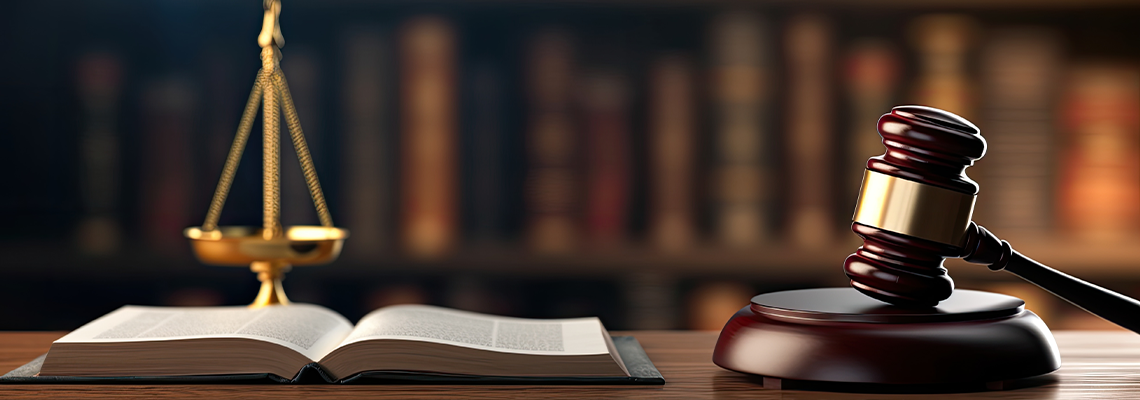
The Role of Evidence in Civil Litigation
In the realm of civil litigation, evidence is the bedrock on which cases are built. It's not just about presenting facts, it's about presenting the right facts and doing so in a way that's both relevant and admissible. From documents to witness testimonies, expert opinions to physical objects, evidence can take myriad forms, each with its own role to play in the courtroom. When you're involved in a civil lawsuit, it's important to have evidence on your side. A civil litigation attorney can help.
At the Law Offices of David H. Schwartz, INC., attorney David H. Schwartz offers top-notch representation in complex business and commercial litigation with 45 years of experience on his side. Serving clients across San Francisco, the East Bay, and the North Bay, this firm stands ready to navigate the intricacies of your case and deliver swift legal solutions. If you're in need of a seasoned business litigation attorney, don't hesitate to reach out to the Law Offices of David H. Schwartz, INC. for a consultation.
Establishing Facts with Evidence
The primary function of evidence in civil litigation is indeed to establish facts. These facts are the building blocks of any legal case, providing the foundation for all subsequent legal arguments and decisions.
However, it's important to remember that not all evidence is created equal. Each piece of evidence presented must have a logical connection to the issues at hand and meet certain legal criteria to be considered admissible. It's not just about quantity, but quality. The better the evidence, the stronger the case.
Proving or Disproving Allegations
Another crucial role of evidence is in proving or disproving allegations. In a civil lawsuit, one party—the plaintiff—makes claims against another party—the defendant. The onus of proof lies squarely with the plaintiff, who must present sufficient evidence to convince the court of the validity of their claims. Conversely, the defendant has the opportunity to present evidence to challenge or refute these allegations.
The weight and credibility of the evidence are then evaluated by the judge or jury, who use this information to determine the outcome of the case. It's a delicate balance, one where the scales of justice are tipped by the strength of the evidence presented. But remember, it's not just about proving a point, it's about disproving the opposition's.
Witness Credibility and Evidence
Witness testimony often plays a vital role in civil litigation, acting as a common form of evidence. Witnesses can offer firsthand accounts of events or provide expert opinions based on their specialized knowledge. Their credibility can significantly impact the outcome of a case, with factors such as demeanor, consistency, and ability to provide supporting evidence all playing a part.
But it's not just about what they say, it's about how they say it. The court's perception of a witness's testimony can be influenced by these and other factors. So, it's not just about presenting witnesses, it's about presenting credible witnesses.
Evaluating Damages Through Evidence
Evidence in civil litigation also aids in assessing damages. Damages refer to the monetary compensation the plaintiff seeks for the harm or loss they've suffered. To support the calculation of these damages, evidence such as financial records, medical reports, or expert opinions may be presented.
The court then takes this evidence into consideration when determining the appropriate compensation for the plaintiff. It's not just about seeking damages, it's about proving them. And the stronger the evidence, the stronger the case for compensation.
The Role of an Attorney in Gathering Evidence
Attorneys can guide their clients through the process of discovery, where most of the evidence collection takes place. This includes requesting documents, conducting depositions, and subpoenaing witnesses. In complex cases, an attorney might also hire investigators or experts to examine certain aspects of the case in detail.
Moreover, an attorney understands the rules of evidence admissibility and can check that all evidence collected is legally sound and relevant to the case. They are skilled in identifying and exploiting weaknesses in the opposing party's evidence, and presenting their client's evidence. The attorney also prepares witnesses for testimonies, ensuring their credibility and the strength of their contribution to the case.
In essence, an attorney is not only an advocate but also a strategist, adept at gathering and utilizing evidence to construct the most convincing case possible. Remember, it's not just about having evidence, it's about having effective, admissible, and compelling evidence; that's where a professional attorney comes into play.
Evidence in Settlement Negotiations
Finally, evidence plays a pivotal role in settlement negotiations. Before a civil case goes to trial, parties often engage in settlement discussions to resolve the dispute outside of court. The strength and persuasiveness of the evidence can influence these negotiations, potentially leading to a more favorable outcome for one party.
Strong evidence can provide leverage during these discussions, while weak or insufficient evidence can result in a less favorable settlement. So it's not just about presenting evidence, it's about leveraging it to your advantage. Because at the end of the day, the strength of your evidence can make or break your case.
The Law Offices of David H. Schwartz, INC., located in San Francisco, California, understands the importance of evidence in civil litigation. With years of experience serving clients throughout the Bay Area, San Jose, Santa Clara, San Mateo, Alameda County, and Oakland, attorney David H. Schwartz is well-equipped to navigate the complexities of civil litigation. We're not just about representing you, we're about building a strong, evidence-based case to support your claims.